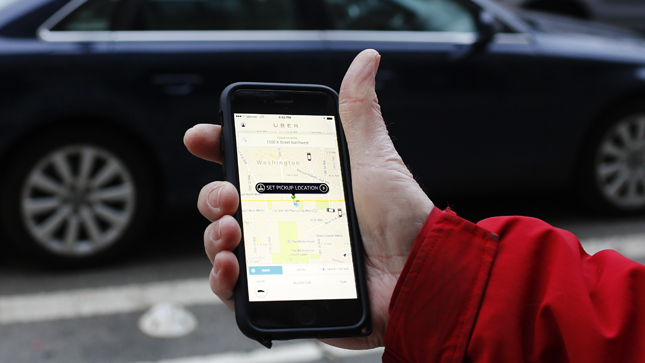Uber is dismissing as “meritless” allegations that it broke consumer protection laws by sending texts urging customers to vote for a ballot measure it is backing.
The ride-hailing company was hit with a lawsuit on Wednesday for allegedly violating the Telephone Consumer Protection Act. Uber allegedly sent thousands of unsolicited texts to Uber users in Austin, Texas, to rally support for a ballot measure ahead of a weekend vote.
Uber blamed the lawsuit on opponents.
“We have taken great precaution to comply with applicable laws and believe the claims in this lawsuit are meritless,” an Uber representative said in a statement on Thursday.
Uber’s terms of service are clear that by signing up for the app, people agree to receive “informational” texts from the company. One question is if its political texts in Austin fall under that category. A number of people on social media have complained about the texts.
“By creating an Account, you agree that the Services may send you informational text (SMS) messages as part of the normal business operation of your use of the Services,” according to the company’s terms.
The company allows people to opt-out by texting the word “STOP” to 89203, but Uber says that could impact a customer’s use of the product.
Unless customers give consent, the Federal Communications Commission (FCC) bars nearly all autodialed or prerecorded calls or texts to mobile phones. There are exceptions for political calls to landlines, but not for mobile phones.
The lawsuit alleges that the identical texts sent to many people must have been automated and were sent without consent.
“The automated text messages that Uber sent to Plaintiff were sent without Plaintiff’s prior express consent and without the Plaintiff’s prior express written consent,” the lawsuit alleges.
Uber has been the subject of complaints about robocalls and texts in the past.
The company was the subject of a 2015 lawsuit in New York over traditional robocalls to landlines it was making to fight Mayor Bill de Blasio’s plan to limit the number of ride-sharing drivers in the city. De Blasio eventually dropped those plans.
There were also reported complaints that the company was calling users in Seattle back in 2014 about pending legislation.
In 2014, Vice highlighted a number of complaints to the Federal Trade Commission about alleged spam texts from the company, which were not necessarily political in nature.
The FCC spurred Lyft to change some of its texting policies and clarify its terms of service last year.
Source: thehill.com





Be the first to comment on "Uber Dismisses Lawsuit Over Election Robo-Texts as ‘Meritless’"